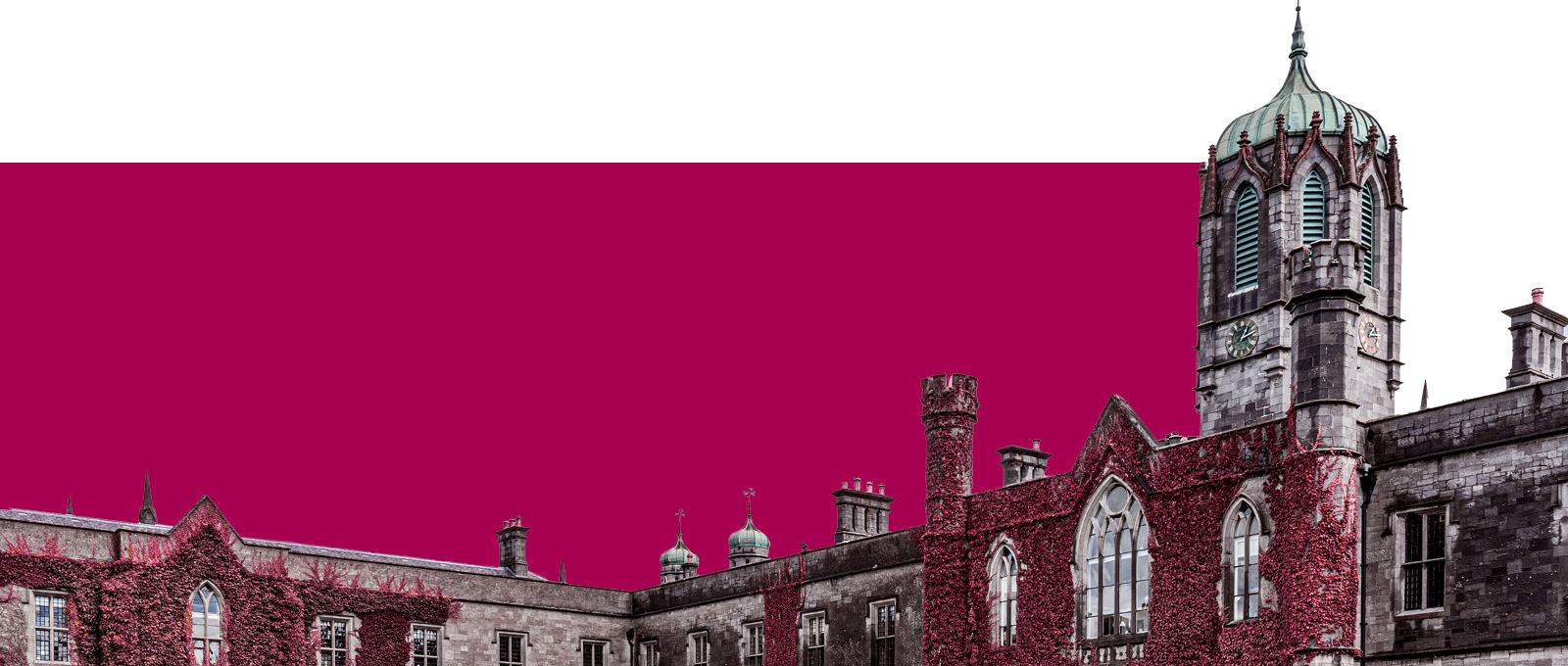Professional Master of Education (PME)
The Professional Master of Education (PME) at University of Galway is a recognised postgraduate qualification for teaching (post-primary) and provides the professional knowledge, understanding and pedagogical skills required to become a post-primary teacher.
The PME is a two-year, full-time programme for graduates and is accredited by the Teaching Council of Ireland for the purposes of registration as a post-primary teacher (pupils aged 12–18 years) in Ireland and the EU, as well as other English-speaking countries.
To enable students to adopt an evidence-based approach to their professional practice and to respond to the complexity of teaching and learning within the modern day classroom, the design and approach to the programme is research-driven and research-based. Students will engage with contemporary research literature as well as policy at international and local level. The University context with its vibrant research culture provides an excellent location for teacher education programmes that are research driven and develop teachers as professional and critical practitioners.
All elements of the PME programmes are, whilst being theoretically informed, relevant to the real world of teaching and learning, to the challenges facing Ireland in the current economic and social context, and to the needs of our young people, building their capacity as active, engaged and responsible citizens.
At University of Galway, it is our mission to prepare knowledgeable, passionate, innovative and caring teachers who embrace diversity, change and uncertainty, and who ask critical questions about education and schooling.
Consequent to the above mission, the PME programme aims to:
enable students to integrate theory and practice so as to support creative teaching and learning;
build students’ awareness of as well as competence and skills in enacting current and emerging national priorities such as literacy, numeracy and inclusion;
support student teachers in the practical teaching programme and provide an understanding of their ethical and legal obligations;
engage student teachers in reflecting in and developing their personal and professional identities, enabling them to become responsible, ethical, collaborative, effective and reflective practitioners;
support students as they develop and explore their emerging professional identity as a teacher;
enable students to develop their capacity as inquiry-based practitioners;
promote and develop student teachers’ appreciation of active research and its potential role in lifelong learning and development of professional practice.
Intakes
- Jan
- Sep
Application Processing Time in Days: 20
Minimum English Language Requirements
| English Level Description | IELTS (1.0 -9.0) | TOEFL IBT (0-120) | TOEFL CBT (0-300) | PTE (10-90) | |
|---|---|---|---|---|---|
| Expert | 9 | 120 | 297-300 | 86-90 | |
| Very Good | 8.5 | 115-119 | 280-293 | 83-86 | |
| Very Good | 8 | 110-114 | 270-280 | 79-83 | |
| Good | 7.5 | 102-109 | 253-267 | 73-79 | |
| Good | 7 | 94-101 | 240-253 | 65-73 | |
| Competent | 6.5 | 79-93 | 213-233 | 58-65 | |
| Competent | 6 | 60-78 | 170-210 | 50-58 | |
| Modest | 5.5 | 46-59 | 133-210 | 43-50 | |
| Modest | 5 | 35-45 | 107-133 | 36-43 | |
| Limited | 4 | 32-34 | 97-103 | 30-36 | |
| Extremely Limited | < 4 | < 31 | < 93 | < 30 |
Job Opportunity Potential
Career opportunities for Electrical & Electronic Engineers continue to be plentiful and varied. With the ongoing emphasis on energy and efficiency, there is an increasing requirement for graduates in electrical generation, transmission and distribution in companies like ESB and Eirgrid.
Semiconductor manufacturing and design provides another dynamic career path, with many of the world’s leading companies located in Ireland including Intel, Analog Devices, On Semiconductor, Texas Instruments and Microsemi.
Demands for expertise in electrical automation and control are also rising, particularly in the biomedical devices and pharmaceutical sectors, while the ongoing growth in demands for telecommunications provides yet another exciting career option in the development and testing of new devices and infrastructure.
According to the State of Ireland 2017 report by Engineers Ireland, there is currently a huge demand for engineers, and it is expected that job opportunities for Electrical and Electronic Engineers both nationally and internationally will continue to grow in the coming years.
This creates a wide range of job opportunities for our graduates and also leads to higher salaries. The most recent Engineers Ireland Salary Survey shows that Electrical and Electronic Engineers are amongst the highest paid in all of the engineering and technology disciplines. In 2014, the median salary for a Chartered Electrical/Electronic Engineer in Ireland was €73,000. This figure is growing year on year (Source)
Admission Requirement / Eligibility Criteria
- Course Type: Full Time
- Course Level: Masters/PG Degree
- Duration: 01 Year
-
Total Tuition Fee:
16640 EUR
Annual Cost of Living: 12000 EUR
Application Fee: 35 EUR
Similar Programs
- MA in Social Work (MSW) at University of Galway
- MA (Public Policy) at University of Galway
- MA (Public Advocacy and Activism) at University of Galway
- Politics and Sociology (MA) at University of Galway
- LLM (Peace Operations, Humanitarian Law and Conflict) at University of Galway
- LLM (General) at University of Galway

